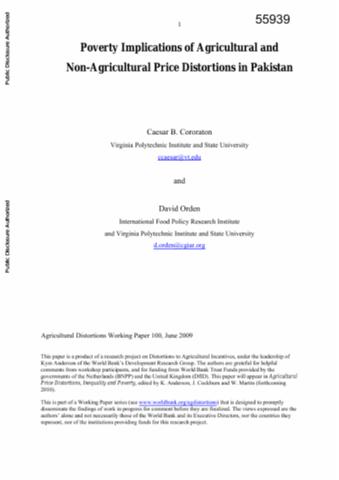Resource information
Using recent estimates of industry assistance rates, the effects of trade liberalization in the rest of the world and in Pakistan alone are analyzed using a global and a Pakistan computable general equilibrium (CGE) model under two tax replacement schemes: a direct income tax and an indirect tax replacement. The results indicate that the distributional and poverty effects in Pakistan of a unilateral liberalization of all traded goods are significantly greater than the effects of trade liberalization in the rest of the world. There is relatively higher increase in real income and larger decline in poverty incidence in poor households both in rural and urban areas. The effects of agricultural trade liberalization alone in both the rest of the world and in Pakistan are considerably smaller than those from trade liberalization involving all goods. In both the agricultural and all-goods trade liberalization scenarios involving direct income tax replacement, real household income is raised and the poverty incidence is lowered at varied rates across all household groups except for the urban non-poor. When an indirect tax replacement is used, where the burden of replacing tariff revenue is shared by all household groups depending on their consumption structure, there is reduction in household income for most of the groups and less reduction of poverty.


